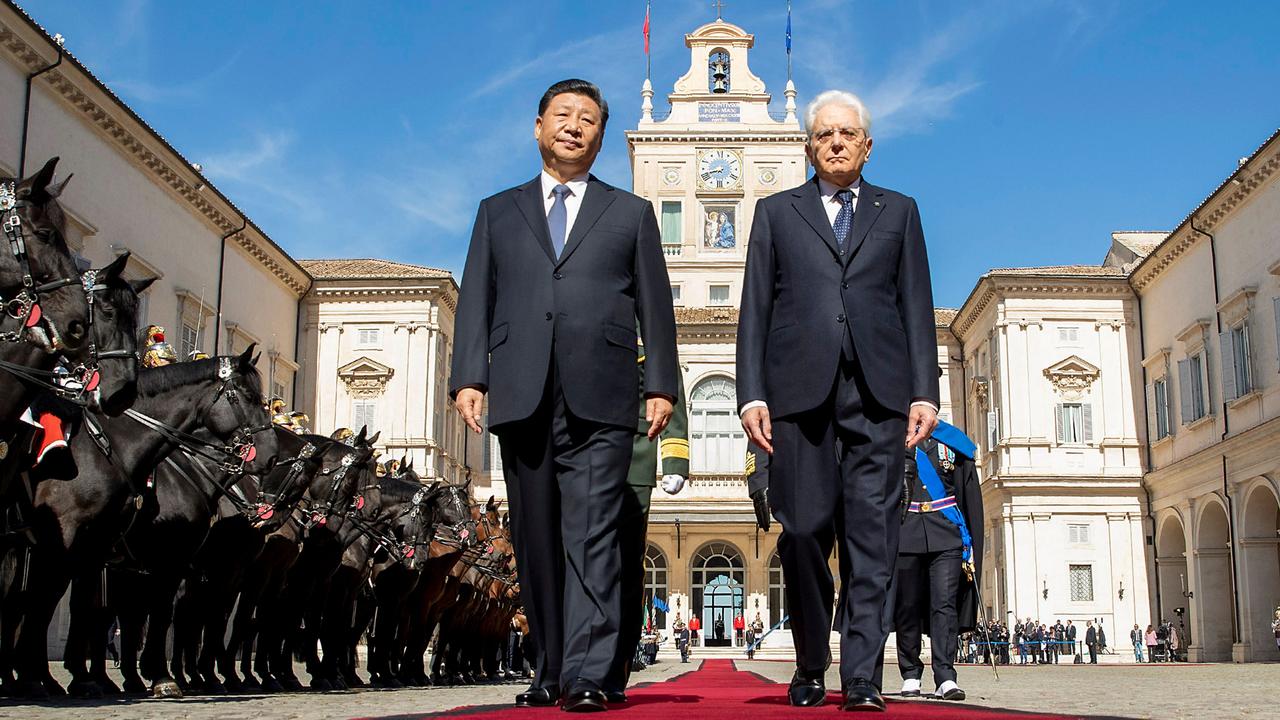China ties a concern, but companies get on with business
Boardrooms across Australia have concerns about our business relationship with China.

Is Australia about to “lose China” and all the economic and other benefits that a positive relationship with China brings?
Or should the question be reversed: can Australia survive as a liberal democracy if it continues to embrace authoritarian China as fully as it has?
These stark concerns are at the centre of discussions about the relationship right now, including in corporate circles in Australia.
But in the business world in China itself — including Chinese firms involved with Australia and Australians working in China — they seem considerably less relevant to daily realities.
The fervent rhetoric of Chinese newspaper Global Times — a publication that prospers, within its own confines, by nurturing nationalistic sentiment that feeds responsive anger — doesn’t reverberate far or deep.
Today’s discussion about the relationship has its value, but it’s hardly the first time we’ve been here.
It’s inevitable that given the difference between our political systems and core beliefs — “universal values” are excoriated at the official level in China — tensions should emerge between the two political classes from time to time.
But relationships that matter have a habit of persisting and, in the case of China and Australia, continuing to broaden and deepen, especially at the business and personal levels.
The Turnbull government’s preparedness to raise its concerns about Chinese influence within Australia — the culmination of about 18 months of media revelations, capped by the downfall of rising Labor star Sam Dastyari — certainly cast some kind of shadow over the 45th anniversary of diplomatic relations with the People’s Republic of China.
But shortly before Christmas, the formal celebration of this anniversary took place regardless, at the grandest pavilion in the august Diaoyutai, the State Guest House. Its current director, Zhang Junsai, was arguably the most effective of Chinese ambassadors in recent years to Australia.
Executive chairmen or presidents of half a dozen of China’s biggest state-owned corporations, those with the greatest involvement with Australia, came unperturbed to the celebratory lunch, some flying from Shanghai and Shandong.
At a Foreign Ministry New Year event a dozen days ago, I was asked by a number of senior officials I knew about the public debate in Australia about Chinese influence.
Clearly they were perturbed. It’s their job to be on top of such matters, and in some cases they have developed an especially positive sense of the Australian relationship, so expressed understandable disappointment at the recent turn of events.
But there was no sense of the apocalyptic, of irretrievable breakdown. Times change, and political relationships, too — sometimes cyclically, sometimes structurally.
The more worrying prospect, on the part of the officials, was that something was changing structurally — even though China’s own party-state has been changing rapidly, and ambitiously, under President Xi Jinping, more so than Malcolm Turnbull’s Canberra.
A week ago I was at a lunch in Beijing at which Gui Guojie, the Shanghai real estate magnate who is also a major beef rancher in Australia; Li Wei, owner of Swan Wine, which has rapidly become the third-biggest importer of wine into China, all from Australia; and Xia Tian, a deputy director of the vast China Chamber of International Commerce (CCOIC), met to discuss how better to boost Australia-China business collaboration via the Port Adelaide Football Club, alongside Port’s chief executive Keith Thomas.
They are planning a massive business networking event involving leaders from both countries on May 18, the day before the second annual AFL game in Shanghai, involving 1000 businesspeople from each country.
A similar event is being planned for later this year in Adelaide.
Andrew Hunter, the club’s general manager of China engagement, says: “We want to make the annual game in China the jewel in the crown of the bilateral relationship — to encourage intercultural understanding between Australia and China, and mutually beneficial commercial outcomes.”
Sport, he said, was “an unrealised platform through which business relationships can be built — but it has to be done well”.
The CCOIC is scanning its membership base of 70,000 Chinese companies to match five with each member of Port’s own business alliance.
Those who maintain that the China relationship has taken a uniquely precipitous downturn may not be aware of even comparatively recent history.
The relationship has grown rapidly, both economically and in the numbers of people involved on both sides. It matters that much more.
This has happened despite frequent controversies, and warnings of withdrawal.
A dozen years ago, for instance, the defecting Chinese diplomat Chen Yonglin was at first shouted down when he spoke at Melbourne University, where Chinese students held up banners with his name crossed out in red, as happened to “capitalist roaders” during the Cultural Revolution.
At a China conference organised by The Australian in 2012, Kerry Stokes blasted both sides of politics for being “disrespectful” of China by lecturing it, saying “Australia should have been the Switzerland of our region”. James Packer warned that “if that (disrespect) continues for long, friendships get damaged”.
Mutual respect is important, as of course is self-respect. A bigger problem is mutual ignorance, which sadly persists. And overreach by Beijing is not new.
In 2013 president Hu Jintao, in addressing the Australian parliament, opened his speech by saying that “back in the 1420s, the expeditionary fleets of China’s Ming Dynasty reached Australian shores. For centuries, the Chinese ... settled down in what they called ‘Southern Land’, or today’s Australia.
“They brought Chinese culture to this land and lived harmoniously with the local people.”
Might this provide the ultimate answer to the Australia Day controversy?




To join the conversation, please log in. Don't have an account? Register
Join the conversation, you are commenting as Logout